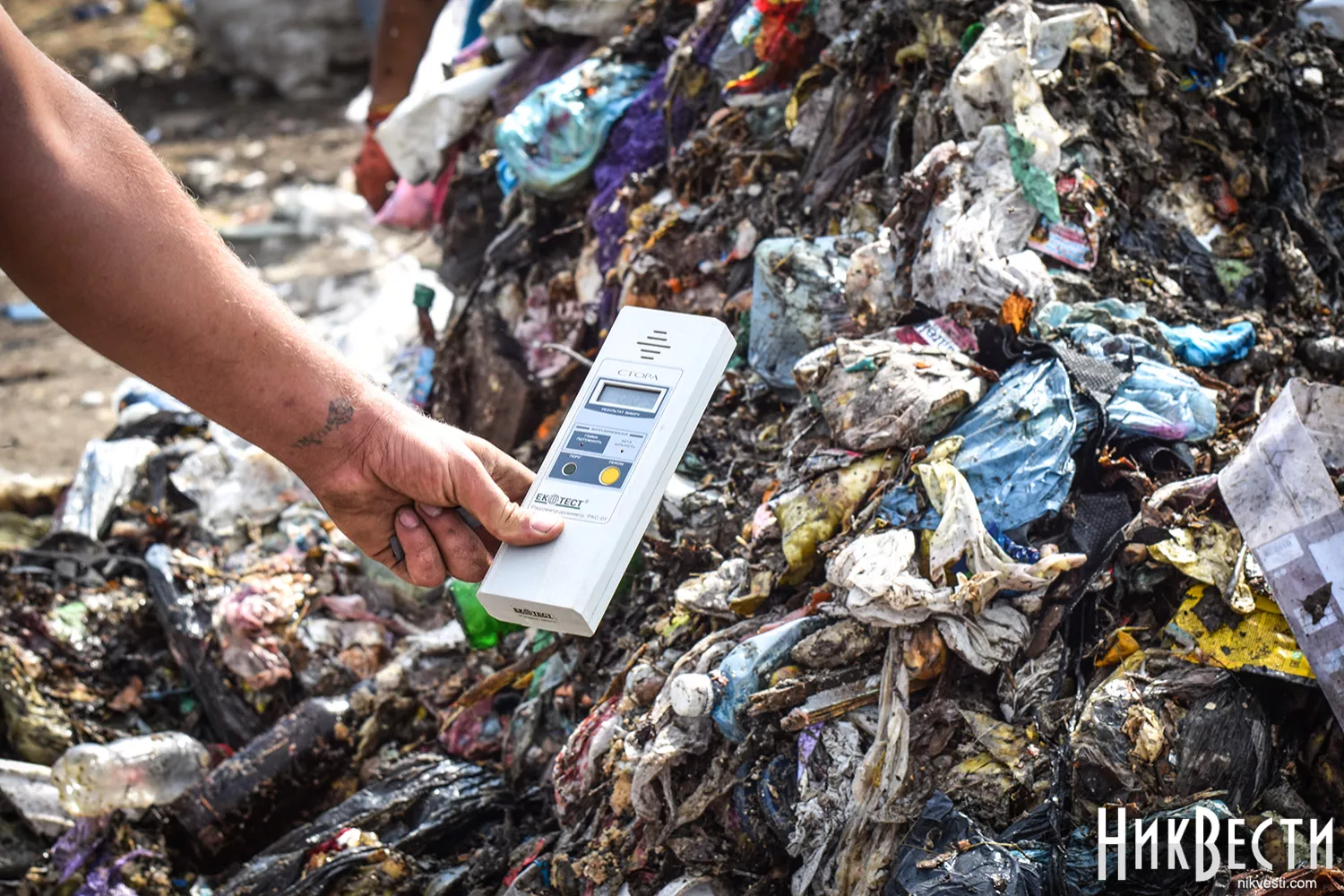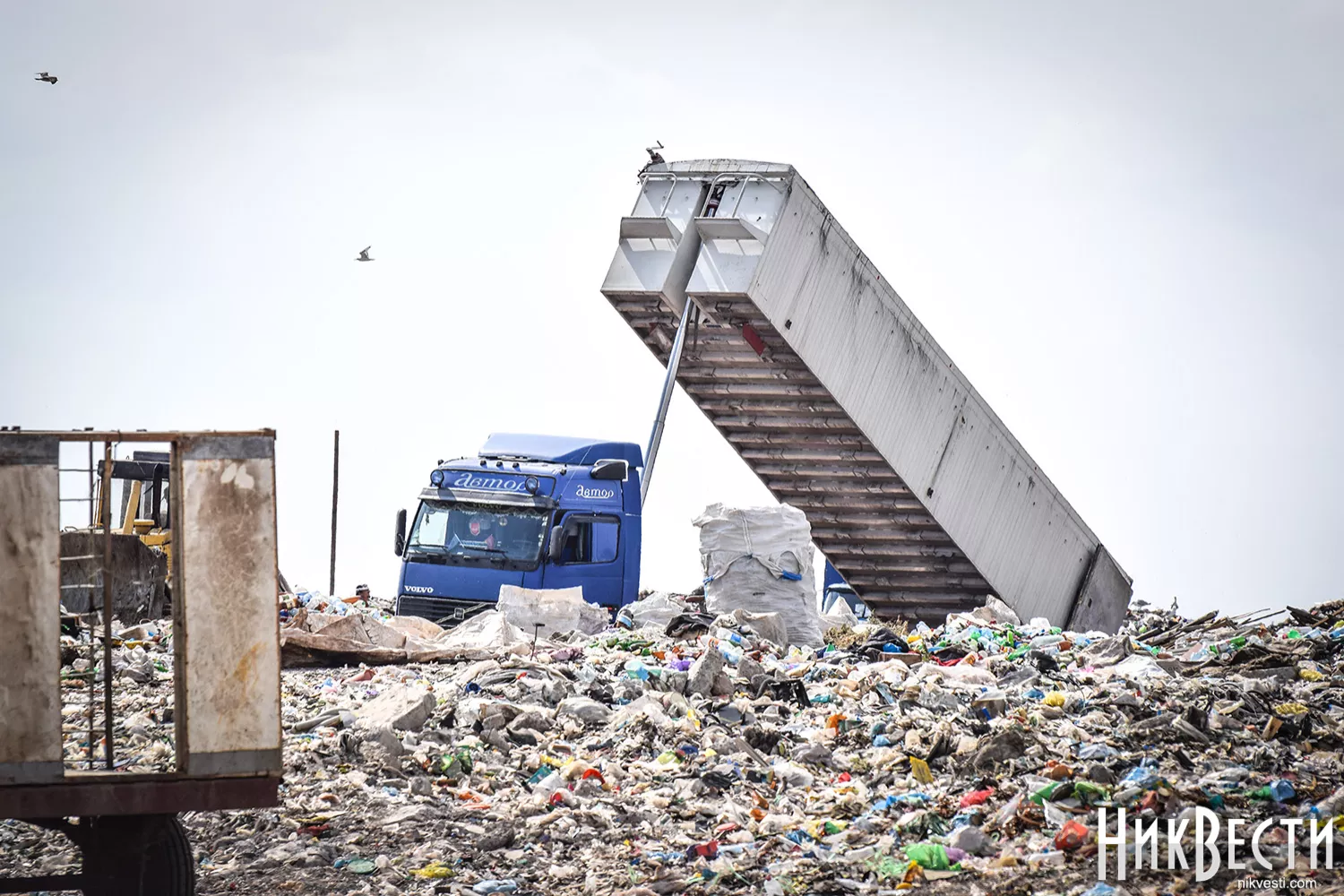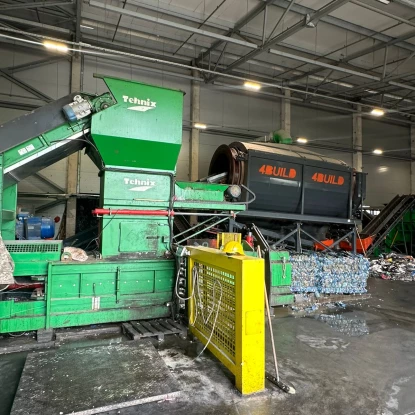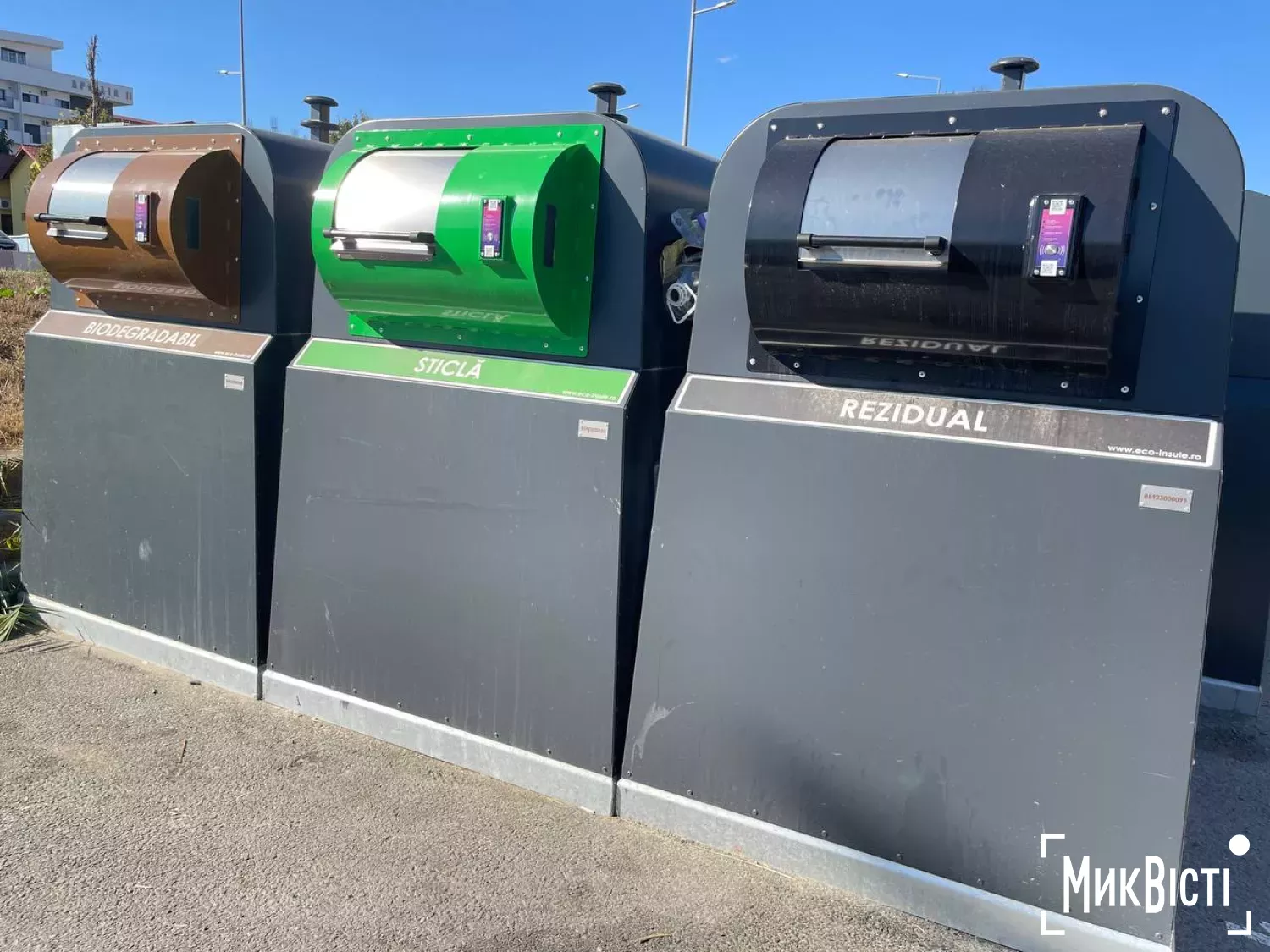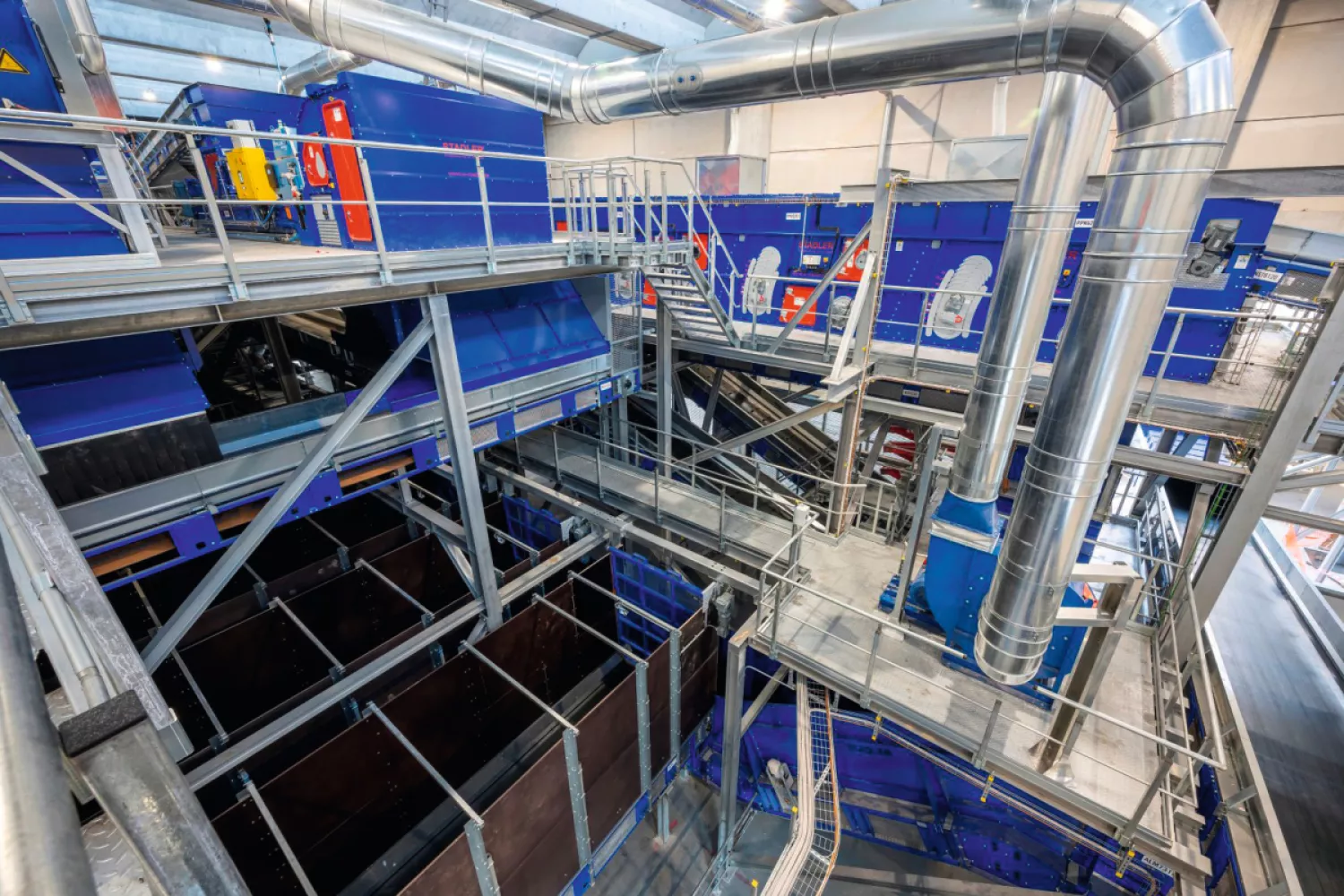How Mykolaiv wants to start sorting waste
- Alina Kvitko
-
•
-
17:11, 31 August, 2025
For many years, waste sorting in Mykolaiv remained on paper, but in September 2024, the city council approved the procedure for the operation of a household waste sorting complex and announced an investment tender to select a contractor. The winner of the tender had to build a sorting line near the landfill and launch a separate waste collection system at the city level.
NikVesti found out how the tender went, why it drew criticism and what awaits the landfill in the coming years.
Andrii Vetsalo, director of the municipal enterprise «Mykolaivkomuntrans», says that the landfill has been extended until July 2031, as its design capacity was previously designed for large enterprises.
Diana Lazareva, deputy director of the municipal enterprise «Mykolaivkomuntrans», emphasises that the requirements for separate waste collection have existed since 2013, when communities were given five years to prepare for the transition to a sorting system.
«Without this, communities cannot function properly. We are moving towards European standards, where sorting is a tool for improving the environment and people's living standards,» says Diana Lazareva.
The city is now trying to enforce the law and launch an effective sorting system, which will form the basis for future waste disposal and reclamation of the old landfill.
Why Mykolaiv City Council is considering the construction of a sorting line
The issue of building a waste sorting line in Mykolaiv was first raised in 2019. At that time, Andri Tsyzin, former director of the municipal enterprise «Mykolaivkomuntrans», estimated the need for funding at 10 million hryvnias to extend the life of the existing solid waste landfill by 10 years.
«A sorting line costs about 4 million — that's one, and we need two. With delivery and design, it will cost about 10 million hryvnias. We are now considering the issue of manufacturers: we are looking at lines, who will give what conditions,» said Andrii Tsyzin.
At the same time, the mayor of Mykolaiv, Oleksandr Sienkevych, said that he did not see the point of allocating 10 million hryvnias from the city budget for the construction of the line and believed that investors should do it. He stressed the need for a transparent tender to select a company to implement the project. Three months later, the mayor announced the possibility of building a sorting line at the expense of the city budget or investors.
In 2019, the Mykolaiv City Council adopted decision №56/66 on the City Targeted Programme for Household Waste Management, but no measures were taken to build a sorting line, rehabilitate the existing landfill, or design a new landfill. There was virtually no public information on the project's further status.
In May 2020, Oleksandr Sienkevych reported that the line could be launched within six months, but noted that most city residents were not ready for separate waste collection, and therefore the city did not plan to implement additional preparatory measures. This was also confirmed by the current director of «Mykolaivkomuntrans», Andrii Vetsalo. He believed that money for the construction of the sorting line should be allocated from the Mykolaiv budget.
«At the time, we were preparing a decision for the Mykolaiv development programme, but no money was allocated to us. No money, no construction,» explained Andrii Vetsalo, director of «Mykolaivkommunatrans», explaining why the waste sorting line was never built.
It was only in 2025 that the Supreme Court of Ukraine ordered the Mykolaiv City Council to build a solid waste sorting line in accordance with the programme approved in 2019. The court ruled that the city council's inaction was unlawful, as its lack of recycling and reclamation measures had led to the expiration of the life of the existing landfill, which had been operating since 1972.
Thus, the construction of a sorting line is now in the focus of attention of the city authorities due to legal obligations and the need to ensure the disposal of waste and reclamation of the landfill, which has long since exhausted its capacity.
Law of Ukraine «On Waste Management»: what is important for communities
In 2023, a new law «On Waste Management» came into force in Ukraine, which significantly changes the approach to household and industrial waste management. The main goal of the law is to reduce the negative impact of waste on the environment and to encourage recycling and reuse of resources.
The main principles of the law are:
1. Priority of reduction and recycling
Communities should refuse to dispose of waste at landfills as much as possible. First and foremost, waste generation should be reduced, sorted, recycled and reused. Only residues that cannot be disposed of in any other way should be buried.
2. Sorting and separate collection
Every community is required to implement a separate collection system for paper, plastic, glass, metal and organic waste. This makes it possible to divert most of the waste to recycling facilities rather than landfills.
3. Infrastructure planning
Communities should develop long-term waste management plans (5-10 years) that include
- Reducing bio-waste disposal by 10% by 2030 and 15% by 2033. This includes, among other things, the installation of sorting lines at landfills to separate biodegradable waste;
-
organising composting sites;
-
upgrading landfills to meet environmental requirements.
4. Responsibility of local authorities
Local councils are responsible for implementing the law. Inaction in the construction of sorting lines or landfill reclamation may have legal consequences, including lawsuits and state control. Government resolutions set mandatory targets for communities to prepare waste for reuse and recycling:
-
by 2025 — at least 10%;
-
by 2030 — at least 20%;
-
by 2035 — at least 25%;
-
by 2040 — at least 35%.
These figures are a benchmark for local authorities to determine the pace of infrastructure development.
Section V («Household Waste») explicitly states that local governments are obliged to organise a waste management system. This includes:
-
separate collection of household waste;
-
establishment of sorting stations;
-
composting of the organic fraction;
-
recycling of suitable materials;
-
landfilling only those wastes that cannot be reused or recycled.
In fact, without the launch of sorting lines and the relevant infrastructure, communities will not be able to comply with the law.
The law is harmonised with EU directives. Ukraine is gradually abandoning the «landfill model as the only option» and moving to a system of separate collection and recycling.
The law has a direct impact on Mykolaiv: the city's solid waste landfill has exhausted its capacity, and a sorting line has not been built. According to the law, the city council is obliged to ensure the implementation of a sorting and recycling system — continuing to operate the landfill does not solve the problem.
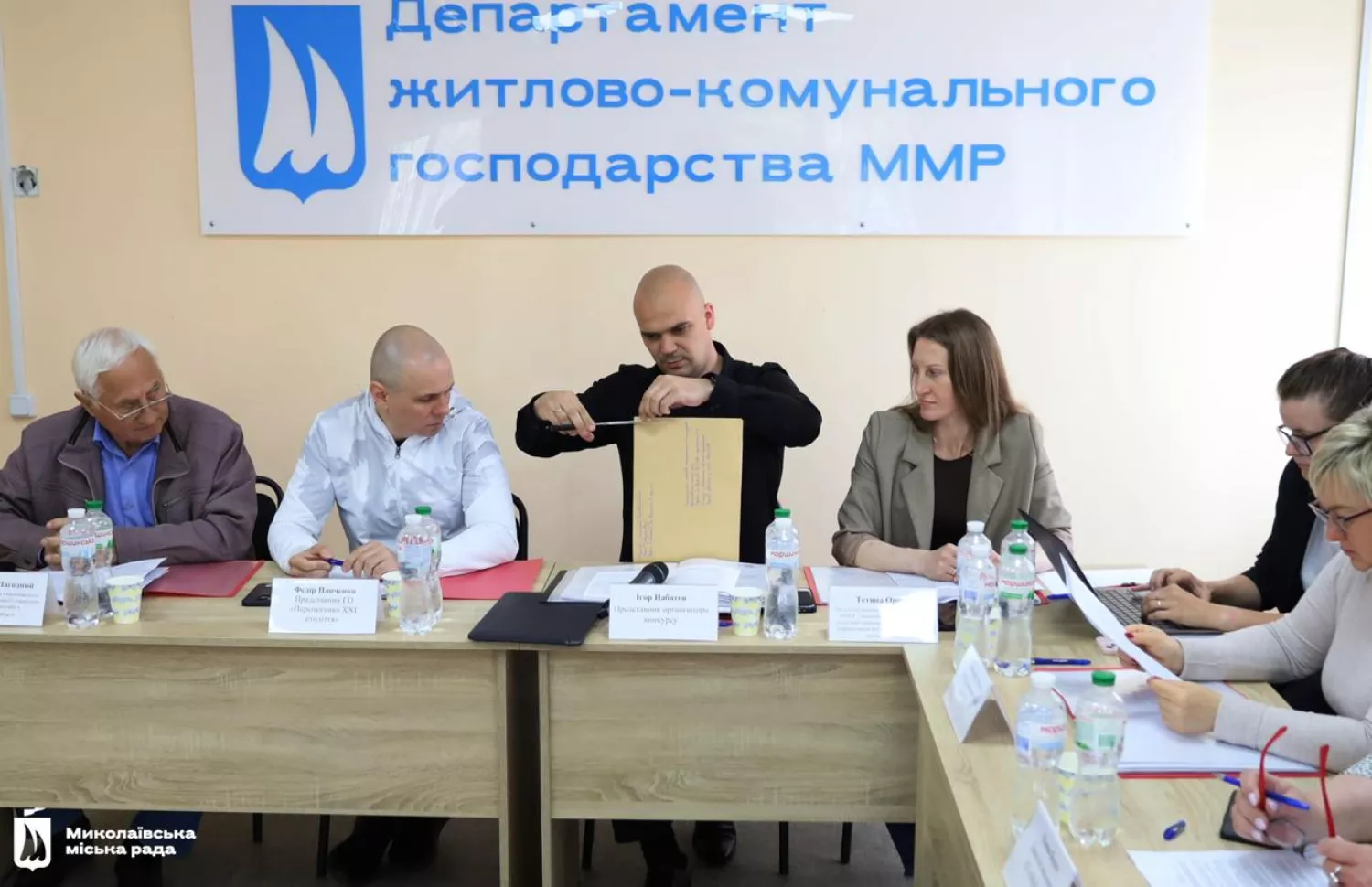 A meeting of the commission that selected the winning company to build a waste sorting line in Mykolaiv. Photo: Mykolaiv City Council
A meeting of the commission that selected the winning company to build a waste sorting line in Mykolaiv. Photo: Mykolaiv City CouncilHow was the tender for waste sorting conducted in Mykolaiv?
In September 2024, the deputies of the Mykolaiv City Council approved the procedure for the operation of a household waste sorting facility, which became the basis for an investment tender. The winner had to build a sorting line near the landfill.
The first tender was unsuccessful — no company submitted a proposal. During the second selection process, two companies inquired about the terms and conditions, but only one submitted a bid. In May 2025, «Waste To Energy Niko» LLC was announced as the winner, scoring 41.2 points out of 75 possible, slightly exceeding the minimum passing threshold.
The line is to be built within 13 months after the agreement is signed, and the agreement itself is designed to last for 25 years. Some MPs, including the head of the Planning and Budget Commission, Fedir Panchenko, criticised the tender conditions: the closed procedure, lack of competition and the company's questionable financial viability.
«This is an issue that we discussed very thoroughly last time. We came to the conclusion that it would be disadvantageous for the community to approve the contract that is now being offered to us. We discussed that we need to change the terms of the tender and announce a new tender. On our recommendation, the Department of Housing and Communal Services has prepared a decision on this matter,» commented deputy Fedir Panchenko.
Therefore, it was decided to submit two draft decisions to the session: one to approve the agreement with the waste sorting company, and the other to refuse.
Prior to the session, which took place on 28 August, Ihor Nabatov, deputy director of the housing and communal services department, stressed that the city council was obliged to implement the sorting line, otherwise officials could face disciplinary, administrative or criminal liability. The court's decision obliges the city to build a sorting line, develop a reclamation project for the existing landfill, and create a new landfill.
Tariff and costs
According to Dmytro Goncharov, director of «Waste To Energy Niko», sorting mixed household waste is not possible without additional payment, as the income from the sale of recyclables does not cover the costs of the complex. Preliminary calculations show that the sorting fee will be 107 hryvnias per 1 cubic metre of waste, which will increase the monthly bill for one apartment building resident by 17.39 hryvnias.
Explaining the figure of 1.25 billion hryvnias at the commission's meeting on 27 August, Dmytro Honcharov clarified that this figure only reflects the estimated revenues over 25 years from waste sorting tariffs, most of which will be used for the company's operating costs. The company does not receive any funds from the budget: all investments in the construction of the sorting line are covered by its own resources.
In addition, Dmytro Honcharov explained that the current tariff for waste removal consists of two parts: collection and transportation, as well as disposal. Once the sorting line is set up, the tariff will have three components: collection and transportation, sorting and disposal, with the sorting fee being charged for the actual amount of waste processed.
According to Andrio Vetsalo, director of «Mykolaivkomuntrans», the sorting line in Ukraine is actually unprofitable: the costs of salaries, electricity and maintenance are not paid off, and recyclables bring in a maximum of 10% of revenue.
«Without primary sorting, the yield of raw materials is up to 8%, and with primary sorting, it is a maximum of 5%. We need to build a waste sorting line because failure to comply with the court decision may even have criminal consequences,» adds Andrii Vetsalo.
Winning company and criticism
Information was spread on social media that «Waste To Energy Niko» has only one employee. Dmytro Honcharov explained that the parent company has been working with waste since 2007, has 8-9 enterprises in Ukraine, its main activity is biogas production at landfills, and the waste sorting line in Mykolaiv will be the first such project.
«The company does not receive any funds from the budget, but only an obligation to build the line and invest its own money. Therefore, it is simply illogical for us «to disappear». We want to invest, build the line and make money on it,» commented Dmitro Honcharov.
It should be noted that Dmytro Honcharov also works in the Decarbonisation Office, an interagency institution that deals with climate policy and energy efficiency, coordinated through the Agency on Energy Efficiency and Energy Saving.
 Head of the State Agency on Energy Efficiency and Energy Saving of Ukraine Hanna Zamazeieva and Director of the Regional Decarbonisation Office Dmytro Honcharov. Photo: State Agency of Ukraine on Energy Efficiency and Energy Saving
Head of the State Agency on Energy Efficiency and Energy Saving of Ukraine Hanna Zamazeieva and Director of the Regional Decarbonisation Office Dmytro Honcharov. Photo: State Agency of Ukraine on Energy Efficiency and Energy SavingThe company assures that the new system will reduce the burden on the landfill, create jobs and attract «green» financing. According to their estimates, the complex will reduce waste disposal by 15-20% at the start and up to 60-70% in the future.
The project is expected to create up to 200 new jobs. These will include sorting line operators, logisticians, IT specialists, maintenance workers, and administrative staff. The company also expects new revenues to the city budget in the form of taxes.
Searches and public reaction
On 21 August, law enforcement officers searched the city council as part of a criminal investigation opened following media reports of possible irregularities during the tender. Investigators seized documents related to the tender.
Speaking to journalists, Mayor Oleksandr Sienkevych called the searches of the city council far-fetched and not constituting a crime. The agency interpreted the mayor's statement as an attempt to divert attention from real violations and question the legality of the investigative actions.
Vitalii Kim, head of Mykolaiv regional administration, said that the tender was conducted improperly and its terms were unfavourable to the community. At the same time, he stressed that the city needs a modern sorting line, but on different terms. Mayor Oleksandr Sienkevych supported the implementation of the project, which the city has been working on for the past 5 years.
On 28 August, at a session of the city council, Oleksandr Sienkevych reacted sharply to the information campaign in telegram channels and refuted the figure of 1.2 billion hryvnias, which appeared as a result of the hypothetical calculations of MP Fedir Panchenko. He stressed that the tender was conducted transparently, and the documentation was kept at the Department of Housing and Communal Services and was available for inspection.
«We will prepare a new tender to select a waste sorting operator with updated terms and conditions, and we will involve Danish companies. We want to hold the tender as transparently, openly and with a minimum number of possible violations as possible,» summed up Oleksandr Sienkevych.
The deputies did not approve the winner of the tender, so the city authorities are preparing new conditions and will announce a new tender.
«We need to start with residents, not investors»
Mykhailo Motuz, the former vice mayor of Mykolaiv (2001-2004) in charge of housing and communal services, said that the city's waste problems are not new and cannot be solved only with the help of large investments. He recalls that back in the early 2000s, negotiations were held with foreign experts, but the promises were often far from reality, and the actual experience of the companies did not match the claims made.
«There have been attempts to «save» the city from waste before — people from different places came to help: Kyiv residents, even Swedish experts, and guards from Kirovohrad. I remember back in 2003, when, as deputy head of the city executive committee, I was negotiating with a group from Germany. The presentation sounded beautiful — the importance of waste management, modern solutions, «world experience». But when I asked where I could actually see their existing projects, it turned out that the company was doing something completely different — promoting educational programmes in Afghanistan. Then it became clear that this was just another «dust-up». The situation is similar now. The current story is reminiscent of the operation «Web», in which the then mayor almost got caught: the land for the future facility had long been leased, and «social investor» had already calculated how much he could earn from the tariffs. And it is possible that he will later try to raise budget money,» writes Mykhailo Motuz.
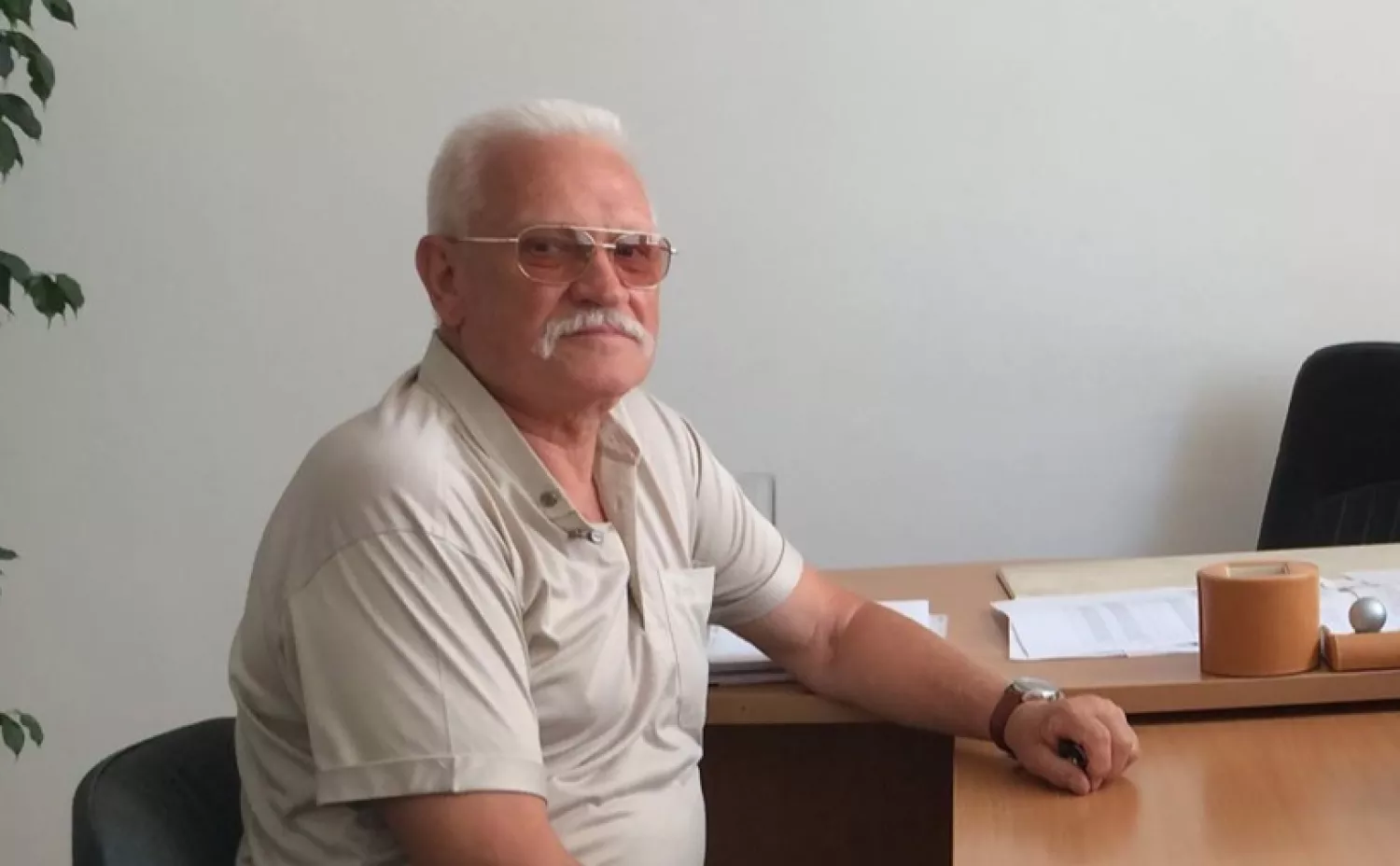 Mykhailo Motuz, former vice mayor of Mykolaiv (2001-2004) in charge of housing and communal services
Mykhailo Motuz, former vice mayor of Mykolaiv (2001-2004) in charge of housing and communal servicesAccording to him, the current initiative to build a sorting line has signs of similar situations: the land for the facility has already been allocated, and the investor expects to make a profit from tariffs, which could lead to attempts to raise budget funds.
Mykhailo Motuz believes that before talking about large-scale investments, it is necessary to establish basic waste management mechanisms first. This, in his opinion, includes the introduction of separate waste collection, overseeing the conclusion of contracts with «Mykolaivkomuntrans» and ensuring that containers are regularly refilled.
The vice mayor also emphasises that the new operator could start by organising work and training staff, automating processes and implementing an effective sorting system at the city level, rather than immediately embarking on a large-scale project where responsibility is placed on residents. Only then, he believes, will the waste management law be able to work effectively, and the sorting system will become a problem-solving tool rather than a source of profit for individual companies.
«Just look at Odesa: the containers there fill up quickly, but the system works. In our country, it is enough to establish the work of district administrations, ensure that contracts with «Mykolaivkomuntrans» are concluded in full, and then funds will be available for additional bins. And an investor who positions himself as an experienced project manager could start from the beginning — with training, automation, and quality organisation, rather than from the end, where responsibility is always shifted to residents. Only then will the law on waste management really work, and the system will become a real solution to the problem rather than a tool for making money. In his interview, the potential contractor cites the example of Zhytomyr, where a similar line is already operating. But even there, he says, the system fails - due to unsorted waste, a significant portion of it still ends up in landfill. In Mykolaiv, the situation is even more complicated. Therefore, before dreaming of billions of dollars in investments, it is worth starting with the basics — organising separate waste collection in the city,» wrote Mykhailo Motuz.
How waste is sorted in Italy and Germany
In Italy, the waste situation in 2025 demonstrates a high level of development of the waste recycling and sorting system. The country recycles more than 76% of packaging waste and approximately 53% of municipal waste, which meets or exceeds EU targets.
The system is based on both home sorting and high-tech sorting lines installed in different regions. For example, IREN has opened a plant near Turin capable of sorting 17 types of polymers and plastic materials with an efficiency of up to 80% and a capacity of 100,000 tonnes per year, while Eni has launched a demonstration plant for the chemical processing of mixed plastic waste, which turns it into raw materials for new products, including food packaging.
At the municipal level, RFID containers, digital systems and CCTV surveillance are being used, as in Parma, where violators are fined up to €10,000 for mis-sorting. Consortia and platforms such as Conai, ReCoRe and differENTI are active in the country, overseeing the collection and recycling of glass, paper, metal and plastic, and the Junker mobile app allows citizens to check where to dispose of specific packaging.
These measures provide the public with convenient sorting tools, while technological sorting lines automate the process and significantly increase recycling efficiency.
Germany: A leader in waste recycling with a high level of automation
In Germany, the recycling rate for packaged waste is even higher, reaching 90%, making the country a leader among European countries.
The system is based on high-tech sorting lines with optical sensors and magnetic separators that automatically separate paper, metal, plastic and glass.
Germany is also actively introducing sensor technology to reduce the risk of fires at recycling plants and innovative chemical methods for reusing plastic.
At the citizen level, sorting is mandatory: plastic bottles, glass, paper and metal are collected in different containers, and fines and enforcement make the system effective. As a result, German sorting lines and home sorting work in tandem to ensure almost complete recycling and minimise landfill.
In both countries, the system's effectiveness is ensured by a combination of household sorting, automated sorting lines, innovative chemical and mechanical recycling technologies, public incentive programmes and enforcement. The public is provided with convenient tools and apps for proper sorting, while technological plants allow processing large volumes of waste, separating it into paper, glass, metal, plastic, organics and residues that are burned for energy.
The situation with waste in Mykolaiv demonstrates that solving the problem requires a comprehensive approach: not only investment in sorting lines, but also the establishment of a separate collection system, staff training and active outreach to residents. The law on waste management and the court ruling force the city authorities to act, and the tender for the contractor was the first practical step in this direction.
At the same time, the experience of other Ukrainian cities and European countries shows that effective sorting is a combination of technology, control and community responsibility. If Mykolaiv can combine investment, infrastructure and the awareness of its residents, the sorting system will not become a mere formality, but will actually help reduce waste, improve the city's environmental standard and create new jobs.
Alina Kvitko, NikVesti
